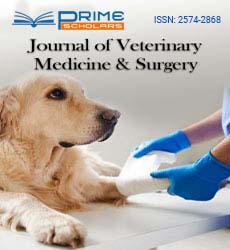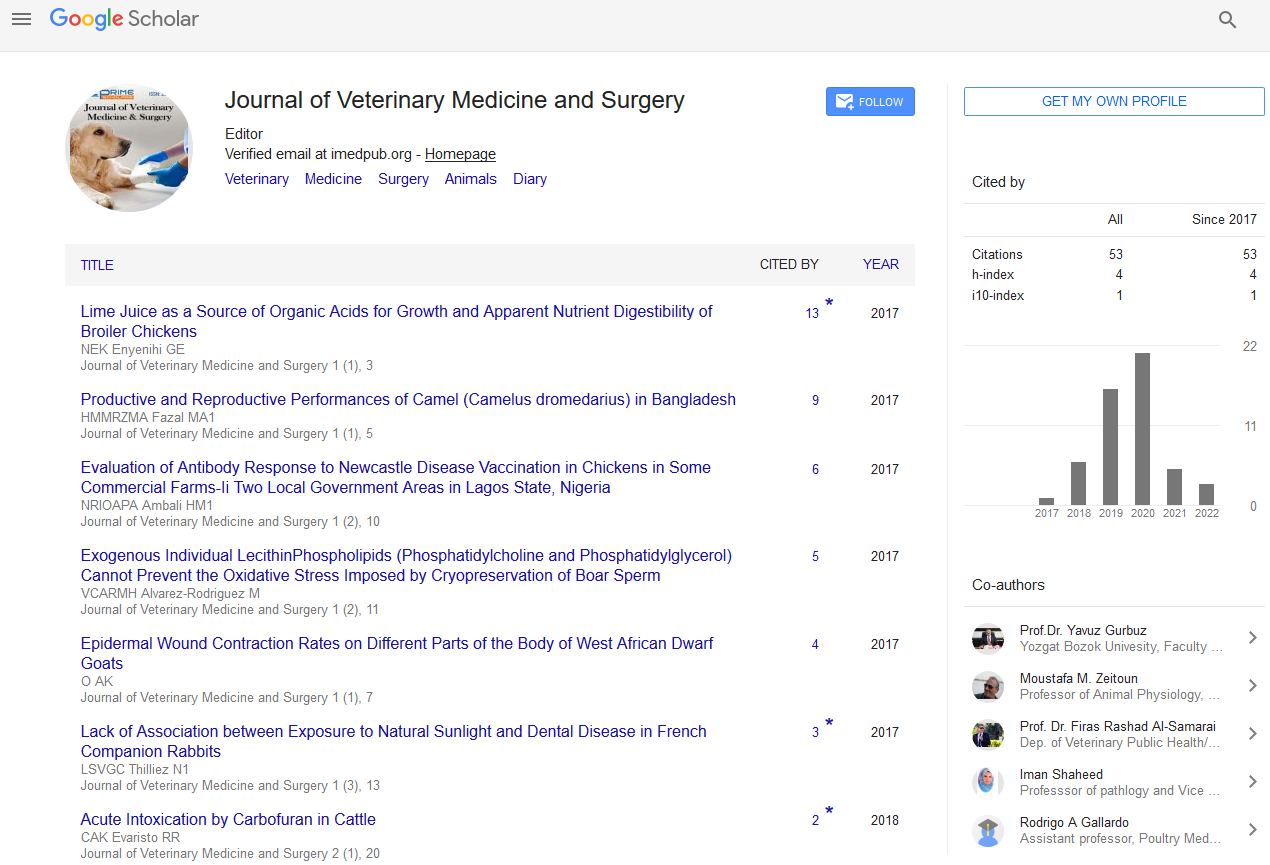Opinion - (2024) Volume 8, Issue 1
Unlocking the Potential of Livestock Genomics: A Pathway to Sustainable Agriculture
Maria Swan*
Department of Veterinary, Duke University, USA
*Correspondence:
Maria Swan,
Department of Veterinary, Duke University,
USA,
Email:
Received: 28-Feb-2024, Manuscript No. IPJVMS-24-19439;
Editor assigned: 01-Mar-2024, Pre QC No. IPJVMS-24-19439 (PQ);
Reviewed: 15-Mar-2024, QC No. IPJVMS-24-19439;
Revised: 20-Mar-2024, Manuscript No. IPJVMS-24-19439 (R);
Published:
27-Mar-2024, DOI: 10.36648/2574-2868.8.1.07
Introduction
In the quest for sustainable agriculture and food security,
advancements in genomics have emerged as a powerful tool
for improving livestock production and welfare. Livestock
genomics, the study of the genetic makeup of domesticated
animals, offers insights into traits such as disease resistance,
productivity, and environmental adaptability. By unraveling the
genetic code of livestock species, researchers and breeders
can identify desirable traits, accelerate breeding programs,
and enhance the resilience and efficiency of livestock systems.
In this article, we delve into the world of livestock genomics,
exploring its applications, benefits, and implications for the
future of agriculture. At its core, livestock genomics involves
the analysis of the entire genetic material, or genome, of
livestock species, including cattle, pigs, sheep, poultry, and
goats. The genome comprises DNA sequences that encode the
instructions for an organism’s development, physiology, and
behavior. Livestock genomics enables breeders to select animals
with desirable traits for breeding purposes more efficiently.
Genomic studies help identify genetic variations associated
with disease resistance in livestock species. By breeding
animals with enhanced resistance to common pathogens
or parasites, promoting animal welfare and sustainability.
Livestock genomics also sheds light on genetic mechanisms
underlying environmental adaptability in different climates
and production systems. Genomic research contributes to
understanding the genetic basis of feed efficiency in livestock
species. Advances in genomic technologies, such as genotyping
and sequencing, facilitate the implementation of precision
livestock farming practices.
Description
By selecting animals with superior genetic potential for traits
such as growth rate, milk yield, and reproductive performance,
farmers can improve the productivity and efficiency of their
livestock operations, leading to increased profitability and
food production. Genomic selection for disease resistance and
resilience helps reduce the incidence of infectious diseases and
minimize the need for medical interventions such as antibiotics
or vaccines. Healthier animals experience less suffering and
exhibit better welfare, contributing to sustainable and ethical
livestock production. Genomic selection for traits such as
feed efficiency and environmental adaptability can reduce
the environmental footprint of livestock production systems.
By optimizing resource use and minimizing waste production,
sustainable breeding practices contribute to mitigating the
environmental impact of agriculture. Livestock breeds or
genetic lines bred for resilience to environmental stressors such
as heat, drought, or disease outbreaks are better equipped to
cope with the challenges posed by climate change. By investing
in resilient livestock genetics, farmers can build more resilient
and adaptive agricultural systems. As the global population
continues to grow, ensuring food security becomes increasingly
critical. Livestock genomics plays a vital role in improving the
efficiency and productivity of livestock production systems,
contributing to the availability of nutritious and affordable
animal protein for human consumption.
Conclusion
Livestock genomics holds immense promise for transforming
livestock production systems, enhancing sustainability, and
promoting food security in a rapidly changing world. By
harnessing the power of genomic technologies, researchers,
breeders, and policymakers can unlock the genetic potential of
livestock species, improve productivity, resilience, and welfare,
and contribute to building more sustainable and equitable
agricultural systems. As we navigate the opportunities and
challenges of livestock genomics, it is essential to prioritize
ethical considerations, stakeholder engagement, and
responsible innovation to ensure that genomic advancements
benefit animals, farmers, consumers, and the planet alike.
Citation: Swan M (2024) Unlocking the Potential of Livestock Genomics: A Pathway to Sustainable Agriculture. J Veterinary Med. 8:07.
Copyright: © 2024 Swan M. This is an open-access article distributed under the terms of the Creative Commons Attribution License, which permits unrestricted use, distribution, and reproduction in any medium, provided the original author and source are credited.

